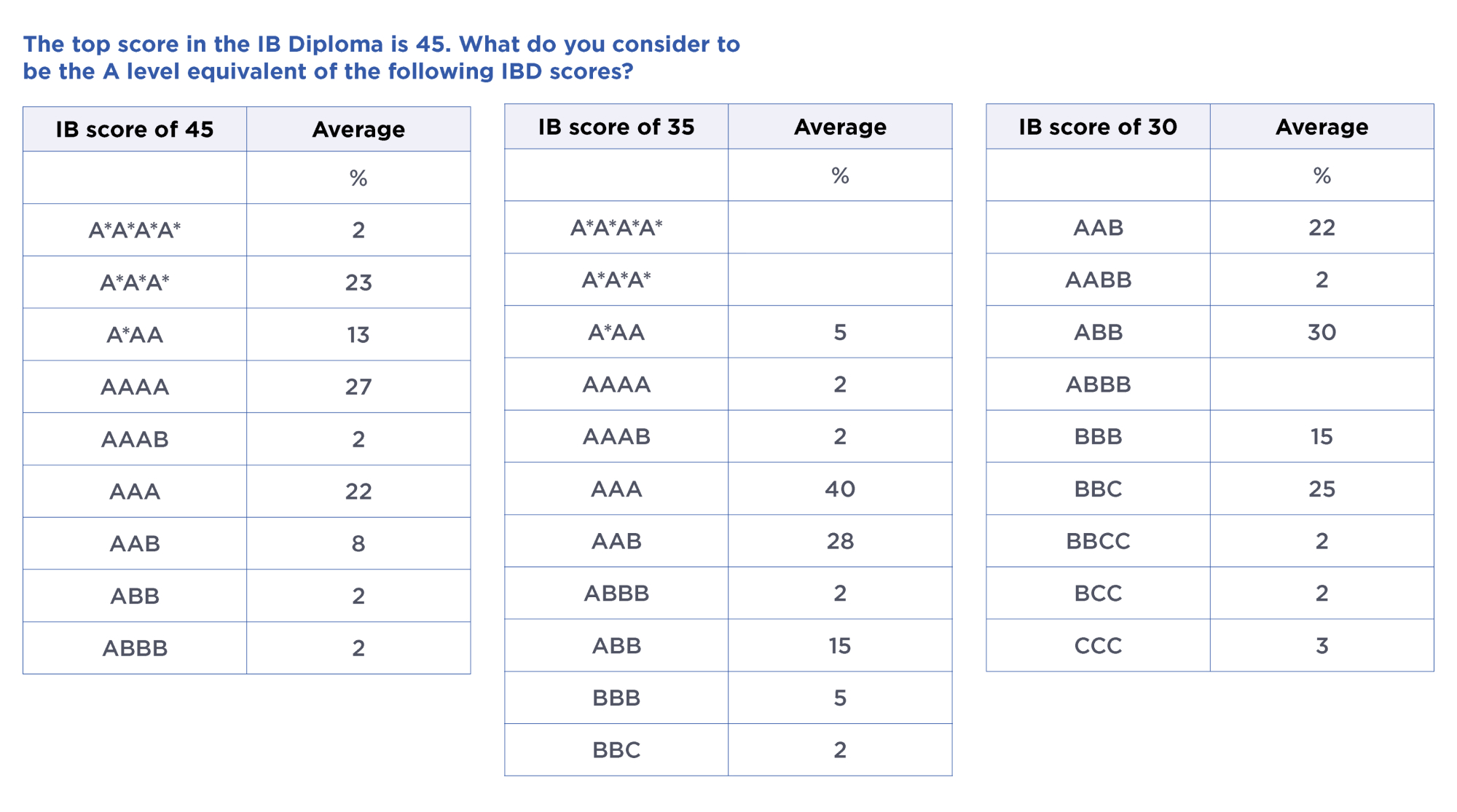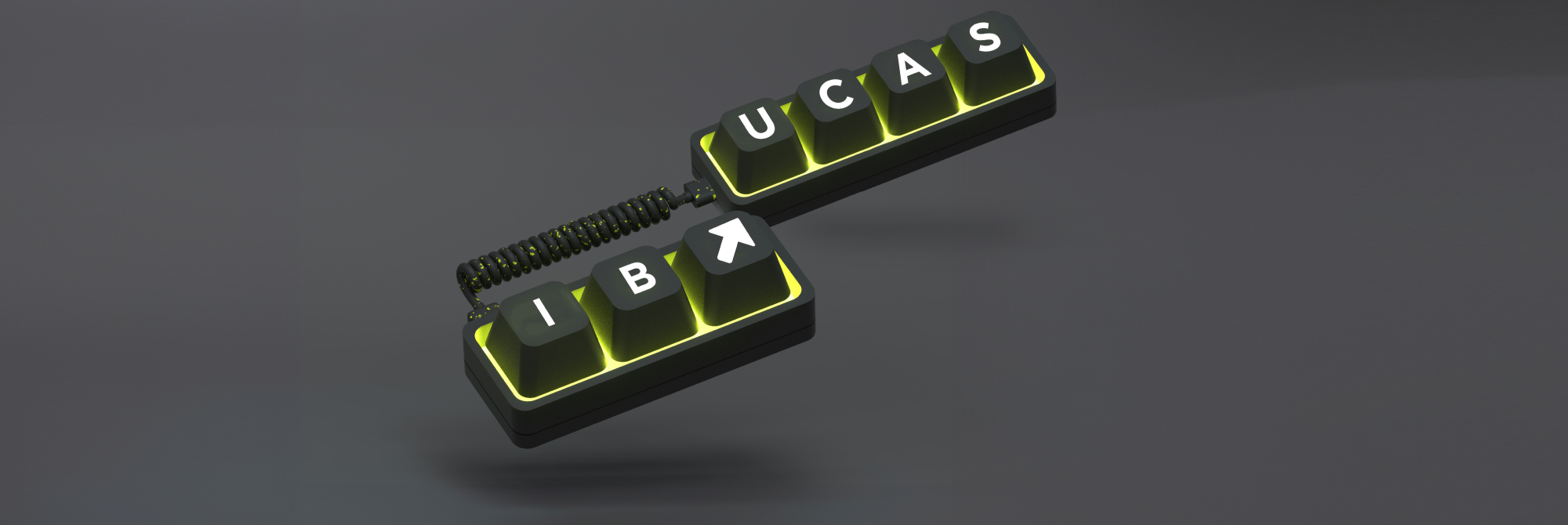Let’s convert IB to UCAS Points and vice versa
UCAS Points serve as universities' means of converting grades and qualifications into a numerical value, crucial for admission to UK universities.
While the Points value for A-Levels is widely understood, for the approximately 4,500 UK students (and 1.4 million worldwide) pursuing the IB Diploma, understanding how to convert IB to UCAS points is essential.
This article will guide you through the process of determining the UCAS Points equivalent of your IB score.
Understanding IB Grades and Converting to UCAS Points
To convert IB to UCAS, it's crucial to grasp IB Scores, which are comprised of Points. These Points reflect your assessed performance in each subject, akin to your grades or marks.
In the IB Diploma, performance in each subject is rated on a scale of 1 to 7 points, with 7 being the highest. Achieving 1s in any subject or too many 2s or 3s can hinder passing, prompting many students to seek assistance from an IB tutor.
Additionally, up to 3 extra points can be earned for the 1,600-word TOK (Theory of Knowledge) essay, focusing on epistemology, and the 4,000-word Extended Essay, graded from A to E.
In summary, the highest scores achievable in each component of the IB are:
- Higher/Advanced level: 21 IB points
- Standard level: 21 IB points
- IB Core: 3 IB points
Your overall Score is the cumulative total of these components. A minimum of 24 points is required to pass and obtain the IB Diploma, while the maximum score is 45 points.
The holistic nature of the IB Diploma's overall Score means that uneven Points across subjects can still result in a successful outcome. Higher marks in advanced subjects can offset lower marks in standard subjects, contributing to a balanced overall Score.
This overall score serves as the basis for converting IB to UCAS.

Converting IB to UCAS Equivalent Grades and Points
To convert IB to UCAS points, it's helpful to begin by considering traditional 'letter' grades.
According to UCAS, 5 IB Points equate to 5 grade A*s in A-Levels. Thus, 40 points correspond to 4 grade A*s in A-Levels, while 35 points equate to 2 grade A*s and 1 grade A, and so on. The diagram in this article illustrates universities' assessments of equivalent 'letter' grades.
Following this measure, a moderate score of 30 IB points, just 6 points above passing, is equivalent to three and a half traditional As. In terms of UCAS tariff points, this score is typically sufficient for admission to most reputable universities, with only Oxbridge or select Russell Group universities requiring higher results.
Explore our comprehensive collection of IB Resources, including IB Study Notes, IB Past Papers, and IB Practice Questions, meticulously crafted by expert IB teachers and examiners!
Converting IB to UCAS Points Directly
You can directly convert IB points to UCAS tariff points by knowing your points in each IB component and your total score.
Both UCAS and many universities prioritize the points earned in Higher/Advanced subjects, as they carry the most UCAS tariff points.
Here's how Higher/Advanced subjects convert from IB to UCAS:
- Grade 7 = 56 UCAS points
- Grade 6 = 48 UCAS points
- Grade 5 = 32 UCAS points
- Grade 4 = 24 UCAS points
- Grade 3 = 12 UCAS points
- Grades 2 and 1 = 0 UCAS points
To convert IB to UCAS based on your Higher/Advanced subject points, simply add up the UCAS tariff points corresponding to your three subject grades. For instance, a student with grades 7, 6, 5 would earn 136 UCAS points, equivalent to AAB in A-Levels.
Converting Standard level subjects in IB to UCAS points, they are worth half the UCAS points of Higher/Advanced subjects:
- Grade 7 = 28 UCAS points
- Grade 6 = 24 UCAS points
- Grade 5 = 16 UCAS points
- Grade 4 = 12 UCAS points
- Grade 3 = 6 UCAS points
- Grades 2 and 1 = 0 UCAS points
For the IB Core (extended essay and Theory of Knowledge):
- Grade A = 12 UCAS points
- Grade B = 10 UCAS points
- Grade C = 8 UCAS points
- Grade D = 6 UCAS points
- Grade E = 4 UCAS points
For instance, a student with 6, 6, 4 in Standard subjects would earn an additional 60 UCAS points to add to their total. A student scoring A in the extended essay and B in Theory of Knowledge would earn 22 more points, adding to their total. Overall, the conversion would result in a total of 218 points.
Getting Ready for the IB Program
1. Utilize IB Resources: Make the most of specialized IB study materials like study notes, past papers, and practice questions developed by experienced IB educators and examiners to gain insights into question types and formats.
2. Engage with IB Tutors: Consider hiring tutors for key subjects such as IB Maths, TOK, and Extended Essay to receive personalized guidance on complex concepts and critical thinking skills.
3. Time Management: Develop efficient time management skills to balance IB coursework and extracurricular activities, crucial for coping with the demanding IB curriculum and avoiding burnout.
4. Regular Practice: Master IB subjects through consistent practice under timed conditions to improve speed and accuracy, vital during exams.
5. Seek Feedback: Regularly request feedback from instructors to identify areas for improvement and refine study strategies effectively.
6. Develop Study Strategies: Collaborate with online tutors to devise study strategies tailored to your learning style, including creating schedules, summarizing information, and practicing active recall.
Incorporating these strategies into your IB preparation plan can significantly increase your chances of success, making the rigorous program more manageable and less stressful.


